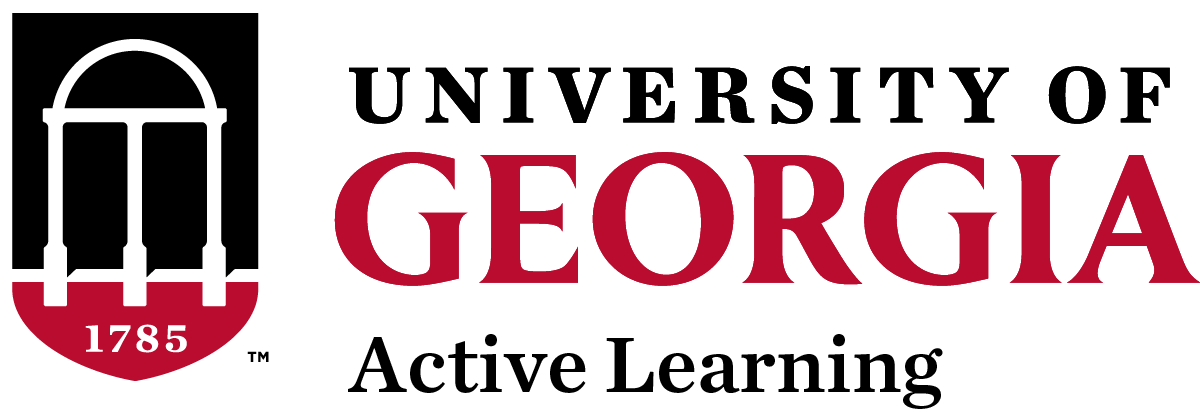Each technique included within our Active Learning Toolkit includes a developmental stage for each active learning technique and a possible trajectory toward the next stage. The descriptions of these developmental stages are broad and may not reflect the development of individual students. Rather, they can serve as a general overview of cognitive development in traditional-age college students. The cognitive development of students may also be affected by other dimensions of their development, such as their interpersonal and intrapersonal development.
What are the developmental stages?
The developmental stages in this tool are based on Marcia B. Baxter Magolda’s Epistemological Reflection Model (1992) (download PDF below), which focuses on cognitive development (and lays the foundation for the comprehensive Learning Partnership Model that considers the role of cognitive, intrapersonal, and interpersonal development to promote self-authorship). Baxter Magolda’s Epistemological Reflection Model is based on a longitudinal research study in which she interviewed her participants from college to middle age. Her research found four stages of development that also show gendered patterns.
1. Absolute Knowing – 2/3 of first-year students & ½ of second-year students
Learners are certain about knowledge and want to acquire knowledge. Instructors are seen as authoritative content experts responsible for imparting knowledge.
2. Transitional Knowing – 80% of juniors and seniors
Learners begin to see uncertainty in knowledge and develop a desire to understand rather than acquire it. Instructors are still viewed as experts, but they are now expected to offer explanations.
3. Independent Knowing
Learners see uncertainty in knowledge and form their own beliefs. They begin to explore and develop knowledge independently and also see the value of their peers in this process. Instructors take on the role of facilitators.
4. Contextual Knowledge
Learners consider knowledge in its context and value evidence to inform their construction of knowledge. Instructors become co-creators of knowledge.
Why should I consider cognitive development theory when planning my course and instructional design?
As instructors, considering the cognitive developmental stages of students informs our role in the classroom, interactions among students in the learning process, and realistic expectations about students’ engagement in active learning techniques that focus on reviewing, deepening, or constructing knowledge. For example, in the Absolute Knowing stage of cognitive development, students rely much more on knowledge imparted by the instructor than that of their peers. Without this understanding, instructors may be frustrated by a lack of student engagement and learning if they select an active learning technique that relies heavily on peer knowledge construction.
What adjustments could I make to meet students where they are?
Example: In your course for first-year students, you are planning to use a think-pair-share activity in which students hypothesize possible causes of a posed problem.
The majority of your students are likely to be in the cognitive developmental stage of “absolute knowing,” which means that they believe in the certainty of knowledge and the existence of correct answers. In addition, they may value the knowledge of the instructor and will want to acquire knowledge rather than construct knowledge and may not be able to navigate a multiplicity of answers to the same question.
An adjustment to this activity might be to focus more on the retrieval of knowledge than the construction of knowledge. Students could focus on describing the problem in more detail or retrieve knowledge of causes for a similar problem.
What adjustments promote development toward the next stage?
In some cases, the S.A.L.T tool lists a trajectory for development, which means that an activity could promote cognitive development towards a more sophisticated stage. With a look towards active learning or learning in a classroom setting, research (Barber et al., 2013) suggests that a developmental shift can be facilitated if students are confronted with perspectives that conflict with their views, are challenged to evaluate knowledge, or are asked to defend their beliefs. Reflection and meta-cognition also play a critical role as students begin to understand their meaning-making process. Carney Strange’s (1994) research presents a number of propositions for development. These posit that learning occurs when learners are confronted with novel tasks and situations that challenge them appropriately (depending on their current level of development). The tasks are challenging but are taken on in a low-stakes, supportive environment, in a dynamic process with other people and the environment (physical setting, human interaction, classroom climate/culture).
Special thanks
This page and the AL Techniques tool are a direct result of work by UGA’s Center for Teaching and Learning 2018-19 Faculty Learning Communities – Intersections of Active Learning, Student Development, and Student Success. We are also indebted to the following individuals, who continued to develop this tool long after the end of their Faculty Learning Community: Emmie Bennett, Katie Burr, Beate Brunow, Nicholas Colvard, Kara Fresk, Zoe Morris, and Lisa Williamson. Finally, we want to recognize the UGA Terry College of Business – Masters in Business Technology students who helped develop this interactive table and user interface.
